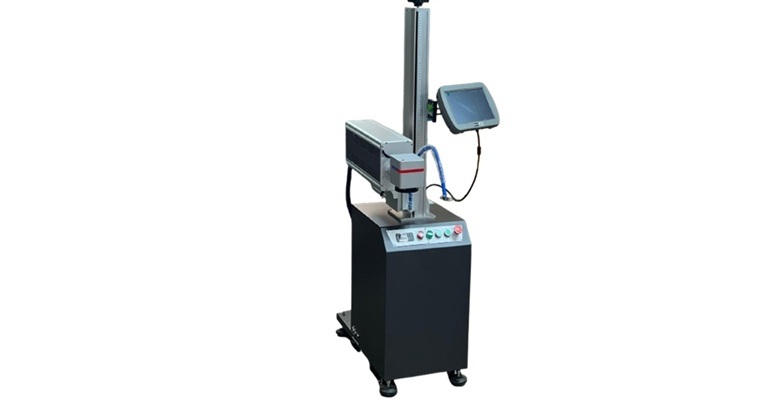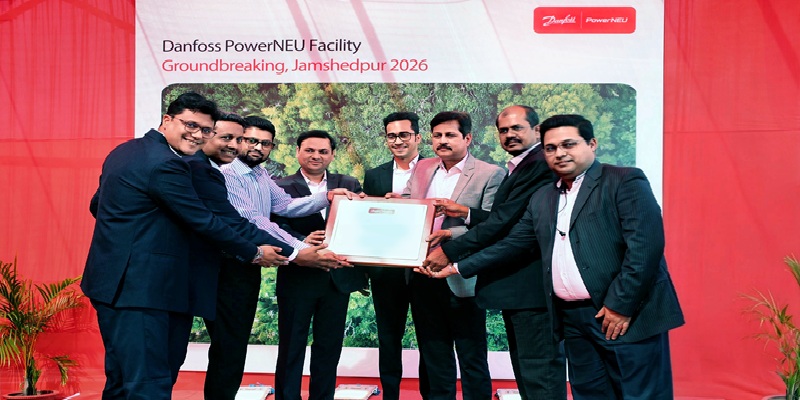Schedule a Call Back
Unlocking the export challenge
 Industry News
Industry News- May 14,20
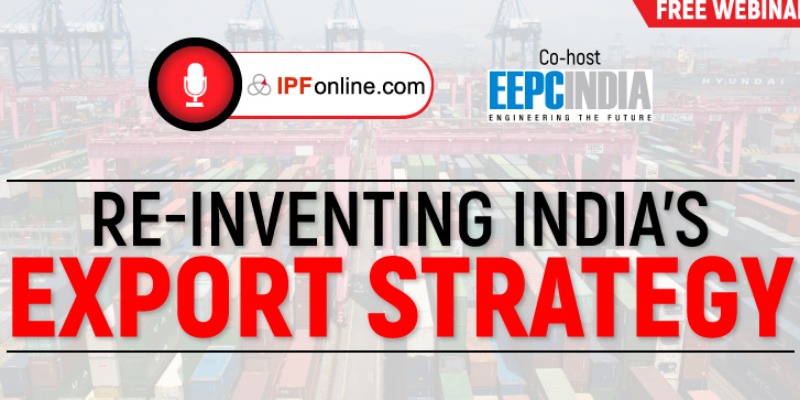
Share of exports of products related to India’s micro, small and medium enterprises (MSME) during the year 2018-19 stood at 48.10 per cent, as per the information from Directorate General of Commercial Intelligence and Statistics.
As part of some policy help to the Indian exporters, the Directorate General of Foreign Trade (DGFT) extended Foreign Trade Policy 2015-20, valid up to March 31 this year to March 31, 2021. As per the notification, the validity of various import-linked export schemes such as Duty Free Import Authorisation (DFIA) and Export Promotion Capital Goods (EPCG) have been extended by one year.
Under EPCG, exporters can import certain amount of capital goods at zero duty for upgrading amount of capital goods at zero duty for upgrading technology related with exports.
Considering this background, Industrial Products Finder (IPF) hosted a webinar titled- Reinventing India’s Export Strategy on April 28 to discuss strategies to build India’s exports and some other issues aligned with the exports. The webinar was co-hosted by Engineering Export Promotion Council (EEPC).
The webinar - which was moderated by Pratap Padode, Editor-in-Chief, Industrial Products Finder (IPF) and President, FIRST Construction Council - included panellists like Dr Jairam Varadaraj, MD, ELGI Equipments Ltd; Prahalathan Iyer, Chief General Manager, Exim Bank; Ravi Sehgal, Chairman, Engineering Export Promotion Council of India; Ruchi Bhat, Director - Indirect Taxation, Ernst and Young LLP (EY); VR Sharma, MD, Jindal Steel & Power Ltd
Every year India gets nearly half-a-million engineers. Information Technology is a strong career pool for most but several dive into traditional engineering. According to the webinar live poll, most businesses believe that by signing better trade agreements, by improving ease of exports and by providing financial liquidity may help India build competitiveness.
Unlocking export challenge
Currently, Indian engineering exports have registered a fall of 5.8 per cent and all 25 top global nations are registering the drop. India had average gains from the countries like Nigeria and Malaysia but noticed biggest falls in Belgium, Singapore, Turkey, Indonesia, Sri Lanka. India has a good share of 15 per cent exports to China. FY 2019-20 and previously, India was at a similar level with the US. A tremendous growth is in CIS countries, meaning Armenia, Azerbaijan, Belarus, Kazakhstan, and Kyrgyzstan.
Dr Jairam Varadaraj believes, “India is a very small fraction in the global landscape. To grow, India needs to center our business around the opportunities outside. This needs consistent commitment or resources and the strategic plan towards it. We have for long referred to the external challenges like bureaucracy, red tape, inertia and the system. The bigger challenge is internal and Indian businesses shall look at reorganising their companies and aligning it for tapping the global opportunity.”
Speaking on the FTP extension and recent policy reforms, Ruchi Bhat describes, “One-year extension of FTP is a relief to the exporters. The policy was due for renewal on 1st April and amid this Covid-19 came in. Government schemes went through lot of discussion and questioning with World Trade Organisation (WTO). There was ambiguity about the fate of some schemes. This extension has brought some clarity.”
“Some upfront exemptions are extended like those of IGST, Advanced Licenses, and EPCGs. New scheme of Remission of Duties or Taxes on Export Products (RoDTEP), a scheme for exporters to reimburse taxes and duties, which is going to replace Merchandise Exports from India Scheme (MEIS) which is to be introduced at will be streamlined,” Bhat adds.
The government is also looking at some other schemes like Manufacture & Other Operations in Warehouse Regulations (MOOWR), an old-skin custom-warehouse scheme launched again. This is giving more options to exporters to explore. This will eventually help in bringing efficiency in FTAs.
It is pertinent to question that how often and how clearly do businesses use the regulations and FTAs effectively. Statistics points that India only takes 30 to 35 per cent benefit of the FTA agreements.
Bhat suggests, “Some basic documentation modification might help from government side, but industry will have to take efforts to actually use these benefits. FTA extensions, RoDTEP, MOOWR are in pipeline people need to get deeper into it and understand to how an exporter can take benefit, especially during Covid-19. I think people should take advantage of schemes come up with some suggestions which EEPC can also take up.”
Bhat rues, “There have been many such regulations and policies that MSMEs are missing out on. There is a need to study government policies to know from where they can benefit themselves and move ahead and contribute to overall development of the nation through exports.”
The FTAs bring the countries closer, making movement of goods easier, but unfortunately, it hasn't really worked for India. There are several reasons for that. One such reason is lack of economy of scale in operations.
Ravi Sehgal speaking on FTA and policy benefits, “While dealing with these kind of trade agreements industry should be prepared to take in the surge of demand. In India what happens, 45 to 50 per cent of the industries are MSME. They have limited capacities while the larger industries are focused on the domestic market with a small share directed to exports. This needs to be worked upon to tap the opportunity besides there are some procedural bottlenecks and regulations.”
The other reason is that 40 per cent the business with European Union (EU) and the US was under Generalized System of Preferences (GSP). And if India has GST, then there is no need of the bottlenecks of FTAs.
VR Sharma Sharing his view over FTAs says, “For us at JSPL, export has rescued us. We have exported more than 400,000 tonne material during the Covid-19 time. Generally, we export only 500,000 to 600,000 tonne a year. Our maximum is 800,000 tonne a year. But this year by May end, we will be crossing 700,000 tonne. It comprise of semi steals, plates and blooms for Railway France. So, the policies are at one end and the competitiveness on the other. Moving to facilitating exports, assigning FTA with the different governments like EU and USA will definitely help to do away with the quota system for Indian industry.”
There is a craving need to address three issues. First, on the government’s side, discussing FTAs over the quota system to ease out finances. Second, FTA discussions will help companies to get the packing credit. Third, need a check whether ports are working efficiently. If these three-step agenda is met, exports may see a boost.
Funding for exports
Today, there are two kinds of funding options available: short-term export credit and medium and the long-term export credit.
Speaking on the funding options, Prahalathan Iyer, states, “Government had schemes for exporters like Interest Subvention Scheme which was in place till March 31, 2020. There is a talk to extend this scheme as it reduces significantly cost of credit.
Iyer adds, “In the medium and long term, Exim Bank extends the lines of credit at the behest of the government of India, which has extended to the sovereigns to import mainly the capital equipment engineering goods and also even civil construction projects where large amount of engineering activities are required. The buyers credit is extended either to the Sovereign or Sovereign guaranteed some of the PSUs are the public sector entities in other countries.”
Exim Bank also helps for merger & acquisitions, joint ventures and sometimes on equity front on foreign soil if an Indian business is looking ahead for business in other nations.
Effect of duties
The current export incentives stand at less than 3 per cent for the steel industry products whereas in comparison most of the countries have more than 10 per cent.
“We want them to allow the same over and above the working capital. In order to encourage exports, there is a need for additional help. We are looking at short-term packing credit against the letter of credit from the buyers bank. Currently, Indian commercial banks are offering the packing credit but that is within the working capital limits,” emphasises Sharma.
In the last 2 months China has changed their total economy. They are going to spend 1.7 trillion dollars on infrastructure projects domestically. They have done wonderfully well and they have steered their economy in a much better way post Covid-19. This will lead to build a huge domestic business base which can be leveraged later for exports. China is said to be building capacities to achieve global demand.
Scheme benefits: Then and now
Traditionally there were schemes to extend benefits to exporters like Duty Drawback which comes to 2-3 per cent. Schemes like MEIS and Brand Drawbacks were aimed to offset the custom duty or taxes paid for raw material or export product. Schemes like traditionally Advance Licenses and EPCGs, which gave upfront exemptions.
Government is introducing a new scheme, RoDTEP, which is a rebate given for the all the duties and taxes falling into your export product. The new scheme will replace MEIS in a phased manner.
Bhat informs, “A committee is formed to come up with rates and percentages based on representations and considerations from varied industry bodies and government ministries. The committee is in the process of collecting information. Exporters should study taxes comprising their products. One thing that is significant to understand here is that we are not looking at taxes like GST or customs because they are credit facility and are already indexed in redundant GST. The taxes that are currently mentioned are non-creditable taxes.”
The webinar’s poll also voted for providing a modernisation fund for the manufacturing sector which was followed by enhancing export incentives. Covid-19 situation is the time think whether the Indian products are acceptable and better than other counterparts.
The webinar concluded on a note that MSME across all industries need to streamline their businesses keeping in mind the current policies announced by the government. There is a need to increase participation on the representations to the government on the policy reforms. Further, companies should keep a track of policies to avail benefits from the government schemes. Indian industries shall specially work on manufacturing quality products and timely deliveries to sustain in the global markets.
Related Stories

IPOs for Indian SMEs: Fueling Capital Access, Credibility & Scale
SME Initial Public Offerings (IPOs) are transforming India’s entrepreneurial landscape by providing capital access, credibility, and governance, enabling small and medium enterprises (SMEs) to sca..
Read more
Smart-tech in cement!
An invigorating discussion amongst industry experts, on digital transformation, sustainability and cybersecurity, threw interesting insights.
Read more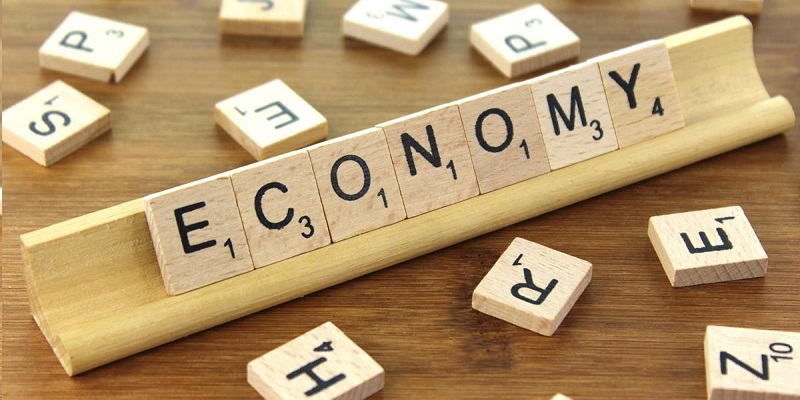
Economic Survey 2024-25: India’s economic prospects for FY26 are balanced
While the Survey acknowledges potential headwinds such as geopolitical uncertainties, trade disruptions, and possible commodity price shocks, it also highlights several domestic growth drivers.
Read moreRelated Products
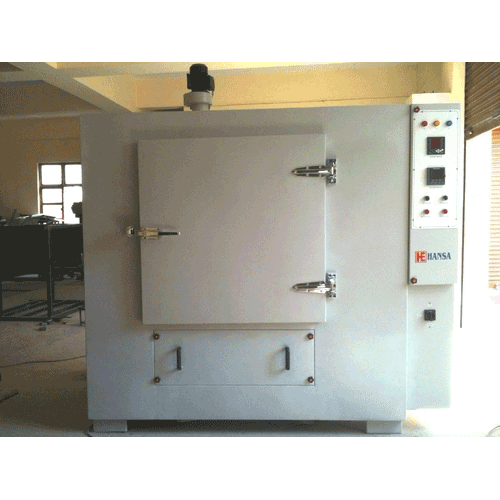
Heavy Industrial Ovens
Hansa Enterprises offers a wide range of heavy industrial ovens.
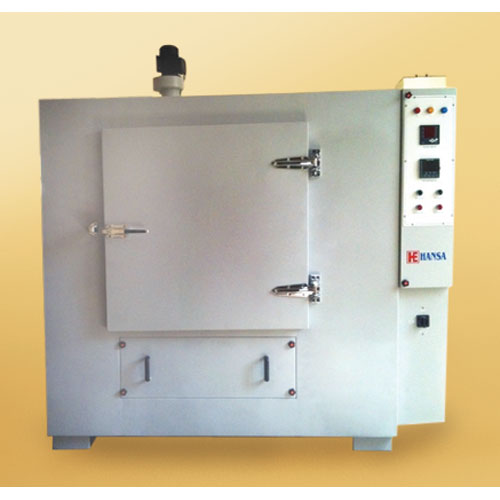
High Quality Industrial Ovens
Hansa Enterprises offers a wide range of high quality industrial ovens. Read more
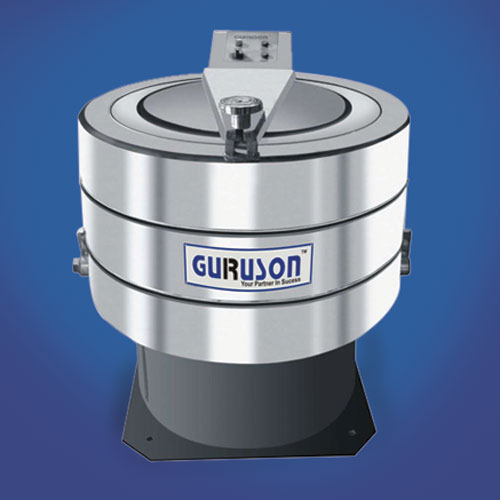
Hydro Extractor
Guruson International offers a wide range of cone hydro extractor. Read more





